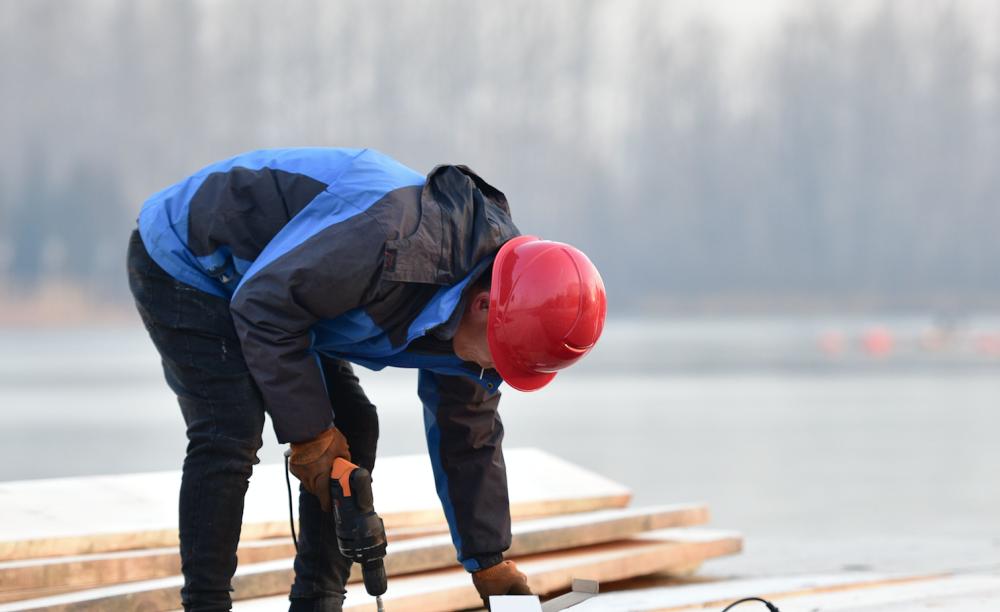(People's Daily health client reporter Shi Mengzhu)
The National Health Commission, the Ministry of Civil Affairs and other five departments recently jointly issued the "Notice on Carrying Out publicity week activities in 2022". The circular calls for the effective implementation of the five-character strategy of "prevention, governance, management, education and construction", strengthening the four-party responsibility of party committees and governments, departments, employers and individual workers, further enhancing the awareness of occupational health in the whole society, and effectively improving the health level of workers.

Photo by Li Weihai
It is reported that April 25 to May 1, 2022 is the 20th Occupational Disease Prevention and Control Law Publicity Week, and the theme of this year's event is "Everything for the Health of Workers".
Thought it was stressful, but in fact it had been mercury poisoning
Ms. Liu, 25, is a newly hired thermometer factory worker. Half a year ago, her thermometer factory accepted a new order, due to the high demand for thermometer, the workshop asked overtime to increase the production of mercury thermometers. After more than 1 month of hard work by the whole plant staff, the production target was finally completed.
But recently, Ms. Liu has gradually developed insomnia, memory loss, and emotional irritability. She initially thought it was due to high work stress, until she developed general weakness, eyelids and lower extremity edema, and then went to the local hospital. After a detailed examination by the medical doctor of occupational disease and poisoning, it was found that Ms. Liu suffered from membranous kidney disease, and the content of metal mercury in the urine was seriously exceeded. After the on-site investigation of the thermometer workshop where Ms. Liu worked, combined with the characteristics of Ms. Liu's disease, it was diagnosed as occupational acute mercury poisoning.
At the same time, it was found that some workers in the workshop also had similar symptoms, but to a lesser extent. In the light of the above, the thermometer factory was informed to conduct occupational health checks on the staff working on mercury.
Under the careful diagnosis and treatment of the medical staff of the Department of Occupational Disease and Poisoning Medicine of Beijing Chaoyang Hospital, Ms. Liu left the production workshop with serious mercury exceeding the standard, and after several courses of hospitalization for mercury repellent treatment, her systemic symptoms improved, proteinuria gradually decreased, kidney function was restored, and the disease was cured.
What is an occupational disease
Article 2 of Chapter 1 of the Law of the People's Republic of China on the Prevention and Control of Occupational Diseases states that "occupational diseases as used in this Law refer to diseases caused by exposure to dust, radioactive substances and other toxic and harmful factors by the exposure of workers of enterprises, public institutions, individual economic organizations and other employers to dust, radioactive substances and other toxic and harmful factors in their occupational activities." ”
The classification and catalogue of statutory occupational diseases in mainland China was promulgated and implemented on December 23, 2013, including 132 occupational diseases in ten categories, as well as open clauses: occupational pneumoconiosis and other respiratory diseases, occupational skin diseases, occupational eye diseases, occupational ear, nose and throat oral diseases, occupational chemical poisoning, occupational diseases caused by physical factors, occupational radiation diseases, occupational infectious diseases, occupational tumors, other occupational diseases, and open clauses.
Ye Qiao, director of the Department of Occupational Disease and Poisoning Medicine of Beijing Chaoyang Hospital, introduced that the Mainland's "Classification Catalogue of Occupational Disease Hazard Factors" covers dust, chemical factors, physical factors, radioactive factors, biological factors, and other harmful factors that may affect the health of workers. Employers and workers should do a good job in controlling harmful factors in occupational places and in the production process and preventing occupational diseases. Once a suspected occupational disease is found, it should be "three early", that is, early detection, early detachment, and early treatment.
Occupational diseases are mainly in prevention
"Occupational diseases are more important than prevention," Ye Qiao told the People's Daily health client reporter. Workers should receive occupational health training before engaging in harmful work, and according to the types of occupational disease hazard factors, under the guidance of the employer, personal protection should be done in accordance with the norms, such as wearing professional masks, earplugs and other protective equipment at work. Employers should continuously improve the process, avoid toxic and harmful substances "running and dripping", and improve the working environment. In accordance with the corresponding laws and regulations and national health standards, employers should conduct occupational health examinations for workers on a regular basis and promptly discover suspected occupational diseases.
In addition, some work-related diseases have not yet been included in the national occupational disease classification and catalog, such as occupational tension caused by factors such as high work pressure, fierce competition, monotonous work content, etc., which are becoming increasingly prominent in the mainland occupational population, which has affected the physical and mental health of some occupational groups in the mainland, and is worth further study.